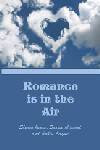Cindy K. Green
www.cindykgreen.com
Voice is the way you sound on paper. My personal voice comes out best when I am writing 1st person POV heroines. My sarcastic wittiness just exudes from me under those circumstances. But when you are writing, the voice of your characters must be taken into consideration. How would that jaded government agent hero sound compared to a graduate student/bookshop clerk heroine? Your reader should be able to “hear” the difference in your writing. Go with the voice that is coming out on the page. Don’t be afraid to follow where it takes you.
Judy Jarvie
Voice is your uniqueness. Your own story, told in your own way.
Read aloud for flow and concentrate on making improvements, clearer meaning etc rather than altering everything or becoming editor zealot.
Susan Atwood
Your writer’s voice is the combination of vocabulary, punctuation, sentence structure, etc. that makes your writing sound like you. Reading aloud is a sure way to keep from polishing your voice out of your novel. If you make changes and the result sounds like an instruction manual hit the undo typing key! Reading aloud also helps to keep the rhythm of your prose in place. If you notice that the natural ebb and flow of words stalls or stops all together, back up and try again.
Denise Patrick
Voice is your unique way of putting words together on a page. I look at it this way: If five different authors were given a paragraph to edit to their own style, you'd get five different paragraphs that all say the same thing differently. Unfortunately, when you ask someone else to critique something you've written, if you incorporate all of their suggestions, sometimes what you end up with no longer sounds like you wrote it? If this happens to you, you've edited out your voice. That little bit of you that you infuse your writing with has been deleted and you should do everything in your power to get it back - otherwise you've lost the spark that might have attracted an editor.
Josh Lockwood
I’ve been told I have a ‘good voice for historicals’ and have no idea what that means. I write what sounds natural to me - trying to get inside the heads of my characters, trying to understand their actions and reactions, their emotions – and if it doesn’t sound realistic I take it out and rethink the scene. I studiously avoid anything that sounds contrived. I want my readers to have that ‘Been there, Done that’ feeling and the only way to get it is to write something I think they can identify with.
Judy Huston
Your writing voice is like your DNA: it’s unique to you, but not always easy to identify at first. It may take you a few books to find your own voice and feel comfortable with it. Meanwhile, no matter how much you admire another writer, don’t try to imitate them slavishly. You can learn a lot from them, but copying them completely will muffle your own voice.
You may also find that your writing voice is not what you expected, but don’t be afraid of it. Avoid editing your work so much that the voice can’t be heard clearly. When you’re presenting a point of view, for example, don’t feel that every sentence has to have a subject or a verb. Incomplete sentence, used sparingly can provide a great way to convey thoughts and emotions quickly, if that is the way your voice wants to present them.
Angie Martin
http://angiemartin.webs.com/
Your voice is how you tell a story. Your way of expressing emotions, describing scenes and telling your story. Everyone has a unique voice, you just have to be careful not to edit it out by too many rewrites of a scence, it's better to walk away from it for a few days before rewriting it.
Subscribe to:
Post Comments (Atom)




No comments:
Post a Comment